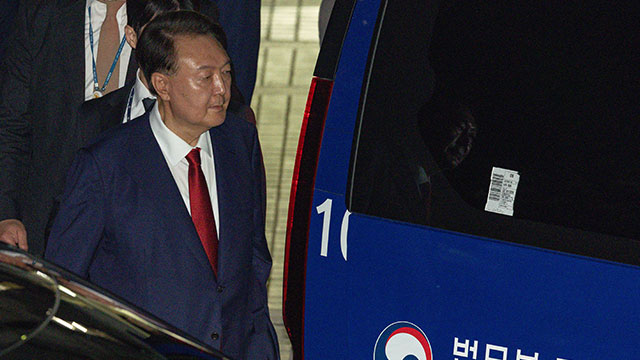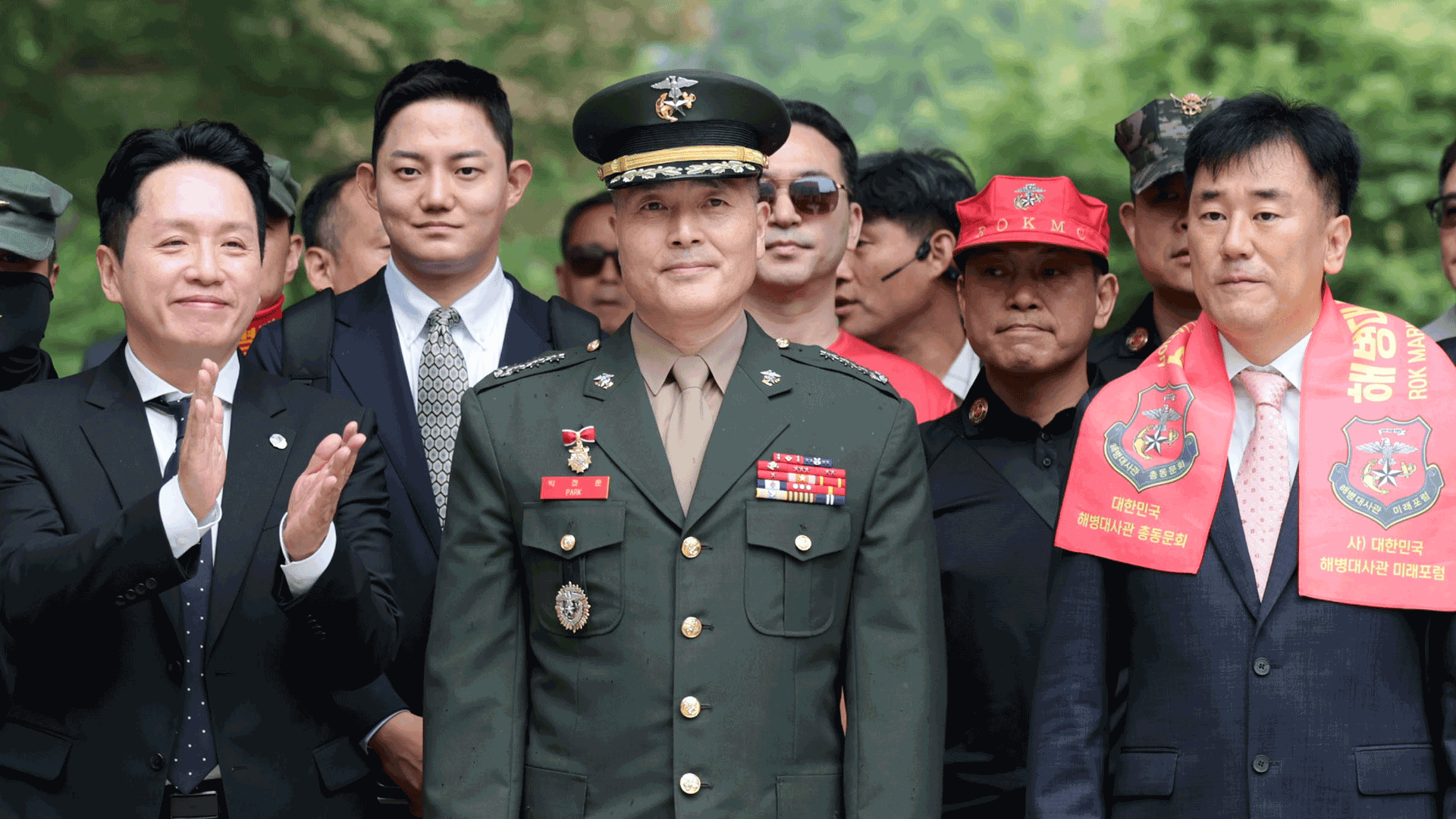REVISION TO WORKWEEK RECOMMENDED
입력 2022.12.13 (15:09)
수정 2022.12.13 (16:45)
읽어주기 기능은 크롬기반의
브라우저에서만 사용하실 수 있습니다.
[Anchor Lead]
The Yoon Seok-yeol government has unveiled the very first blueprint for the revision of the 52 hour work week, one of the pledges he originally amde. The key of the revision is diversifying units to manage overtime work hours from the current weekly basis to a monthly, quarterly plan. This means maximum working hours in a week can expand from the current 52 hours to 69 hours.
[Pkg]
After five months of discussions, the Future Labor Market Research Society has announced a final recommendation for the government to reform the labor market.
[Soundbite] Prof. Kwon Soon-won(Sookmyung Women's Univ.) : "We have come up with ways to change the current work-week system to meet various needs and boost flexibility."
The most evident change is diversifying units to manage overtime work hours from the current weekly basis to a monthly plan. It means increasing overtime work hours from the current 12 hours a week to 52 hours a month. Overtime would be 140 hours per quarter, which is about 90 percent of monthly work hours. Semiannually, it is 250 hours or 80 percent of the monthly hours. And annually, it is 440 hours or 70 percent of the monthly unit. The group also recommended that a rest of 11 straight hours be given to workers between workdays. The adjustment to the overtime management unit will let workers work up to 11.5 hours a day. This means working a maximum of 69 hours a week. However, the revision must obtain agreement between labor and management before introduction.
[Soundbite] Prof. Kwon Soon-won(Sookmyung Women's Univ.) : "When the maximum limit on overtime is considered, it is 69 hours a week. But they are rare, exceptional cases."
The group also proposed calculating pay for workers working on a selective hour system every three months, instead of the current one-month basis. It also proposed a work hour saving system that allows workers to have holidays, rather than pecuniary rewards, in return for their services on off-days or at night. The group also recommended converting the current salary step system to a merit-based system. Based on the recommendation, the government will devise and unveil a detailed road map for revising related laws.
The Yoon Seok-yeol government has unveiled the very first blueprint for the revision of the 52 hour work week, one of the pledges he originally amde. The key of the revision is diversifying units to manage overtime work hours from the current weekly basis to a monthly, quarterly plan. This means maximum working hours in a week can expand from the current 52 hours to 69 hours.
[Pkg]
After five months of discussions, the Future Labor Market Research Society has announced a final recommendation for the government to reform the labor market.
[Soundbite] Prof. Kwon Soon-won(Sookmyung Women's Univ.) : "We have come up with ways to change the current work-week system to meet various needs and boost flexibility."
The most evident change is diversifying units to manage overtime work hours from the current weekly basis to a monthly plan. It means increasing overtime work hours from the current 12 hours a week to 52 hours a month. Overtime would be 140 hours per quarter, which is about 90 percent of monthly work hours. Semiannually, it is 250 hours or 80 percent of the monthly hours. And annually, it is 440 hours or 70 percent of the monthly unit. The group also recommended that a rest of 11 straight hours be given to workers between workdays. The adjustment to the overtime management unit will let workers work up to 11.5 hours a day. This means working a maximum of 69 hours a week. However, the revision must obtain agreement between labor and management before introduction.
[Soundbite] Prof. Kwon Soon-won(Sookmyung Women's Univ.) : "When the maximum limit on overtime is considered, it is 69 hours a week. But they are rare, exceptional cases."
The group also proposed calculating pay for workers working on a selective hour system every three months, instead of the current one-month basis. It also proposed a work hour saving system that allows workers to have holidays, rather than pecuniary rewards, in return for their services on off-days or at night. The group also recommended converting the current salary step system to a merit-based system. Based on the recommendation, the government will devise and unveil a detailed road map for revising related laws.
■ 제보하기
▷ 카카오톡 : 'KBS제보' 검색, 채널 추가
▷ 전화 : 02-781-1234, 4444
▷ 이메일 : kbs1234@kbs.co.kr
▷ 유튜브, 네이버, 카카오에서도 KBS뉴스를 구독해주세요!
- REVISION TO WORKWEEK RECOMMENDED
-
- 입력 2022-12-13 15:09:28
- 수정2022-12-13 16:45:13

[Anchor Lead]
The Yoon Seok-yeol government has unveiled the very first blueprint for the revision of the 52 hour work week, one of the pledges he originally amde. The key of the revision is diversifying units to manage overtime work hours from the current weekly basis to a monthly, quarterly plan. This means maximum working hours in a week can expand from the current 52 hours to 69 hours.
[Pkg]
After five months of discussions, the Future Labor Market Research Society has announced a final recommendation for the government to reform the labor market.
[Soundbite] Prof. Kwon Soon-won(Sookmyung Women's Univ.) : "We have come up with ways to change the current work-week system to meet various needs and boost flexibility."
The most evident change is diversifying units to manage overtime work hours from the current weekly basis to a monthly plan. It means increasing overtime work hours from the current 12 hours a week to 52 hours a month. Overtime would be 140 hours per quarter, which is about 90 percent of monthly work hours. Semiannually, it is 250 hours or 80 percent of the monthly hours. And annually, it is 440 hours or 70 percent of the monthly unit. The group also recommended that a rest of 11 straight hours be given to workers between workdays. The adjustment to the overtime management unit will let workers work up to 11.5 hours a day. This means working a maximum of 69 hours a week. However, the revision must obtain agreement between labor and management before introduction.
[Soundbite] Prof. Kwon Soon-won(Sookmyung Women's Univ.) : "When the maximum limit on overtime is considered, it is 69 hours a week. But they are rare, exceptional cases."
The group also proposed calculating pay for workers working on a selective hour system every three months, instead of the current one-month basis. It also proposed a work hour saving system that allows workers to have holidays, rather than pecuniary rewards, in return for their services on off-days or at night. The group also recommended converting the current salary step system to a merit-based system. Based on the recommendation, the government will devise and unveil a detailed road map for revising related laws.
The Yoon Seok-yeol government has unveiled the very first blueprint for the revision of the 52 hour work week, one of the pledges he originally amde. The key of the revision is diversifying units to manage overtime work hours from the current weekly basis to a monthly, quarterly plan. This means maximum working hours in a week can expand from the current 52 hours to 69 hours.
[Pkg]
After five months of discussions, the Future Labor Market Research Society has announced a final recommendation for the government to reform the labor market.
[Soundbite] Prof. Kwon Soon-won(Sookmyung Women's Univ.) : "We have come up with ways to change the current work-week system to meet various needs and boost flexibility."
The most evident change is diversifying units to manage overtime work hours from the current weekly basis to a monthly plan. It means increasing overtime work hours from the current 12 hours a week to 52 hours a month. Overtime would be 140 hours per quarter, which is about 90 percent of monthly work hours. Semiannually, it is 250 hours or 80 percent of the monthly hours. And annually, it is 440 hours or 70 percent of the monthly unit. The group also recommended that a rest of 11 straight hours be given to workers between workdays. The adjustment to the overtime management unit will let workers work up to 11.5 hours a day. This means working a maximum of 69 hours a week. However, the revision must obtain agreement between labor and management before introduction.
[Soundbite] Prof. Kwon Soon-won(Sookmyung Women's Univ.) : "When the maximum limit on overtime is considered, it is 69 hours a week. But they are rare, exceptional cases."
The group also proposed calculating pay for workers working on a selective hour system every three months, instead of the current one-month basis. It also proposed a work hour saving system that allows workers to have holidays, rather than pecuniary rewards, in return for their services on off-days or at night. The group also recommended converting the current salary step system to a merit-based system. Based on the recommendation, the government will devise and unveil a detailed road map for revising related laws.
이 기사가 좋으셨다면
-
좋아요
0
-
응원해요
0
-
후속 원해요
0










![[HEADLINE]](https://news.kbs.co.kr/data/news/title_image/newsmp4/news_today/2022/12/13/10_5625044.jpeg)

![[속보] 금강서 물놀이하다 실종된 20대 4명 전원 <br>심정지 상태 발견](/data/layer/904/2025/07/20250709_FtgoEX.jpg)

![[단독] ‘공천개입 핵심 물증’ 윤상현 휴대전화 미제출…야간 추가 압수수색도 실패](/data/layer/904/2025/07/20250709_dRidEM.png)


이 기사에 대한 의견을 남겨주세요.